Be sure to "like" our Face Book page (Helping People Recover) and follow us on Instagram for ongoing updates and information!
Meet the Treatment Providers
Please call us today to get started or if you have more questions! (614) 766-5211
Ryan Fryman, DO In Memoriam
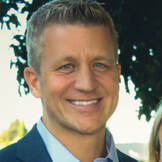
Dr. Fryman was a bright light in this epidemic of addiction. He was a remarkable doctor and had a strong desire to change lives for the better, which he did. Dr. Fryman believed in treating the whole person, not just the symptoms of addiction and withdrawal. He truly saw the good in people and he created HPR to make a difference. We still hold fast his beliefs and try to honor him with our quality of care. He will continue to be the heart and soul of this operation and his legacy will live on in the lives of his patients, who are living proof that recovery can be achieved.
David E. Allen, MD
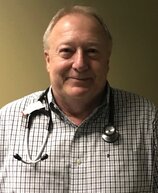
Dr. Allen has 15 years of experience in emergency medicine, and 7 years of experience in urgent care medicine. In 2007 Dr. Allen became certified by the Substance Abuse and Mental Health Services Administration, and began providing Suboxone therapy. Dr. Allen is currently certified in Internal Medicine by the American Board of Internal Medicine and is also certified in Addiction Medicine by the American Board of Preventative Medicine.
Dr. Allen believes that addiction is a muti-faceted disease involving physical, psychological, social, and spiritual aspects. For meaningful recovery, all of these need to be addressed. Taking Suboxone alone will not lead to recovery. Suboxone only treats the withdrawal symptoms. Recovery involves treating all of the other aspects of the disease. This includes counseling, support groups (such as 12 step or faith based groups), and sometimes treatment of coexisting disorders such as depression. Only then can
meaningful recovery be achieved. The term 'recovery' basically means learning how to live a happy life without using a chemical to
change how you feel. Suboxone doesn't change how you feel, it only eliminates the withdrawal symptoms so you can focus on addressing the other aspects of the disease.
"Anyone can recover from addiction, as long as they are ready and willing, once they become tired of living life the way most addicts do, constantly worrying where their next 'fix' will come from. Recovery is simple , but it's not easy and it takes help. We can provide
that help If you don't call us, please call someone."
Dr. Allen believes that addiction is a muti-faceted disease involving physical, psychological, social, and spiritual aspects. For meaningful recovery, all of these need to be addressed. Taking Suboxone alone will not lead to recovery. Suboxone only treats the withdrawal symptoms. Recovery involves treating all of the other aspects of the disease. This includes counseling, support groups (such as 12 step or faith based groups), and sometimes treatment of coexisting disorders such as depression. Only then can
meaningful recovery be achieved. The term 'recovery' basically means learning how to live a happy life without using a chemical to
change how you feel. Suboxone doesn't change how you feel, it only eliminates the withdrawal symptoms so you can focus on addressing the other aspects of the disease.
"Anyone can recover from addiction, as long as they are ready and willing, once they become tired of living life the way most addicts do, constantly worrying where their next 'fix' will come from. Recovery is simple , but it's not easy and it takes help. We can provide
that help If you don't call us, please call someone."
Harry P. Nguyen, MD (Retired)
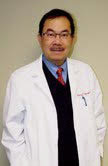
During the 90's while working as an emergency physician in a downtown big city Emergency Department, Dr. Nguyen came across many cases of drug overdose with respiratory arrest. He saved many of them. Many came in more than once and after a few times, they were found too late, already dead. These deaths affected him greatly, especially if it was a young mother that just lost her life due to drug use.
"My mother passed away when I was very young, at the age of 32. My memories of her are fading and few. Sometimes I wonder why I turned out to be as I am now, I could have been a very bad boy, a gangster, or who knows what. Deep in my heart, I care very deeply about young mothers, wondering what would happen to her children? Who will look after them? They will suffer a great deal due to her death from drug use."
Dr. Nguyen was looking for a solution, realizing the these unnecessary deaths are preventable. If we can save one mother from drug related death, then we have saved more than one person but a whole family. Dr. Nguyen went on and study Addiction Medicine,
become a certified Addictionologist by the American Society of Addiction Medicine in 1998 and re certified in 2008 and subsequently
a Diplomate of the American Board of Addiction Medicine.
"My mother passed away when I was very young, at the age of 32. My memories of her are fading and few. Sometimes I wonder why I turned out to be as I am now, I could have been a very bad boy, a gangster, or who knows what. Deep in my heart, I care very deeply about young mothers, wondering what would happen to her children? Who will look after them? They will suffer a great deal due to her death from drug use."
Dr. Nguyen was looking for a solution, realizing the these unnecessary deaths are preventable. If we can save one mother from drug related death, then we have saved more than one person but a whole family. Dr. Nguyen went on and study Addiction Medicine,
become a certified Addictionologist by the American Society of Addiction Medicine in 1998 and re certified in 2008 and subsequently
a Diplomate of the American Board of Addiction Medicine.
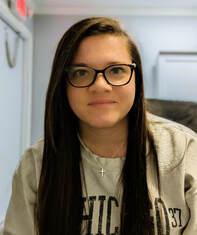
Katie Wright
Office Manager
Office Manager
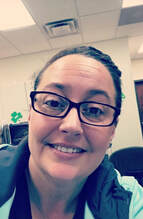
Mel Danforth-Hommon
Medical Assistant